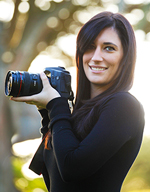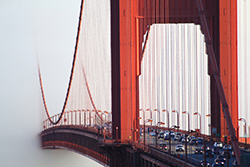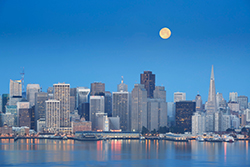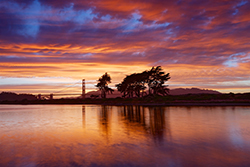
|
|
|||||
|
Featured Photographer, February 2017: Della Huff
We are happy to have Della Huff as our featured guest photographer this month. We appreciate that she gave us some of her time and generously shared her beautiful photography with us! Please visit her links to see more of her work, and to let her know you enjoyed this interview. :: How did you get your start in photography, and what about this medium drew you in more than the other artistic mediums? My dad was a hobbyist photographer, and as a kid I spent hours on the living room floor flipping through envelopes of 4x6 prints. I think it was the idea of capturing a "decisive moment" - á la Henri Cartier-Bresson - that initially drew me to photography. When I was 13 I had the opportunity to take my first black and white darkroom photography course. My dad generously gave me his 35mm Nikkormat camera and taught me to use it. I've been obsessed since the moment I pulled my first roll of negatives from the canister, still wet with darkroom chemicals. :: Being a bay area photographer, you've obviously photographed the iconic locations a multitude of times...what still keeps those places interesting? That's easy: the light. Every subject is new again in amazing light and weather conditions. I frequently plan a specific shot in my mind and wait years for the right lighting, weather, astronomic, and atmospheric conditions to align. :: With all these iconic locations come a million different views of them...how do you try to differentiate your work from the other shots that are out there? I'm a Bay Area native and I truly love our local landscape. It's a big part of who I am. And because I grew up here, I've had a lifetime to explore interesting perspectives on the iconic landmarks. I like to think that I've brought some new perspectives to the table, and as cheesy as it sounds, I bring the love and energy I feel for the Bay Area to my images, too. :: You just photographed a book project on Fort Point, having been in that fort a million times myself, I am familiar with all of the little nooks and crannies. What about that fort do you find special that others who have been there maybe one or two times might not realize? What angle, or experience there making the book stood out the most as being "different" or unique? Thanks for noticing the book! Photographing Fort Point for the Golden Gate National Parks Conservancy was an honor and a privilege. As part of the project I was able to access the Fort when it's usually closed, and was able to be there for sunset and after dark. One thing that I came to understand while photographing it is that despite the fact that it is dark inside the fort, it is actually a very colorful place! The colors of the red brick, green moss, white masonry and paint, and blue doors really came to life with longer exposures inside the dark hallways. :: Of all the other places you've traveled to for photography which place exceeded expectations and why? Which place did you find the most challenging from a creative stand point? How did you deal with that? I just traveled to Cuba in December and January and it was incredibly photogenic. The cars, the crumbling colonial architecture, the colors, the fascinating street photography opportunities… like everyone says, it was like stepping back in time and nearly every inch of it was a photograph waiting to happen. I didn't get to spend nearly enough time capturing it all and I know I'll be back. :: What is your favorite piece of non photographic gear and why? Does my iPhone count? I seriously don't know how I'd live without it. :: What is the scariest thing that has happened to you while on a shoot? [This is probably too terrible to include in a blog post…] Last spring I was hit by a car at 30-35mph while crossing the street during a cityscape photo session in San Francisco. I'm lucky to be alive and so grateful to still be here. :: What advice would you pass on to young people looking to make a career in photography? Look at a lot of images and really think about what makes them compelling. Have a vision and bring discipline to your art. Try to get it right in the camera in as few exposures as possible rather than "spray and pray". Have a point of view on what makes a photograph excellent. And to achieve commercial success, try to specialize in a certain field or area and be the best at it, rather than trying to be a generalist. I first started selling my work regularly about 10 years ago when I built up a solid portfolio of Boston images. There were definitely photographers who had great images of Boston out there, but clients liked to work with me because I was more of a "one stop shop" with an extensive portfolio of Boston's landmarks in all seasons. :: Where do you stand on the processing limit? How much is too much? Is any amount of processing OK? When shooting in RAW, images are flatter than in real life and I believe that post-processing to bring back contrast, vibrancy, and dynamic range (pulling in highlights, lifting shadows) is a must. I use graduated neutral density filters to try to achieve a great exposure in-camera as much as possible but I will sometimes blend two exposures if necessary (and it is necessary for Milky Way images, for instance). I will also clone out distracting details occasionally, such as a footprint in the sand or a power line in the distance. But I draw the line at adding details that weren't originally there. I won't photoshop in a sunburst flare, for instance. :: As photographers, we all have those locations or ideas that never seem to work out the way we want...they become almost a nemesis. Do you have one of these locations? If so, how have you tried to deal with it? Hmm. I'm not sure I use a word as strong as "nemesis", but I would love to photograph Yosemite under a fresh coat of snow. I've traveled to Yosemite for a few winter weekends and gotten skunked. It'll happen eventually! In the meantime, even a "skunked" weekend in Yosemite is still always amazing! :: What is still on your photographic bucket list? So many locations! Japan, Scotland, and Greece are high on my list right now. And after going on an amazing two week safari in Kenya and Tanzania last year, I'd love to try more wildlife photography. I'm going to Yellowstone for the first time this summer and look forward to photographing moose, wolves, bears, bison and more. I'd also like to try out deep space astrophotography. :: Are there any advances in technology you're really waiting for, or have we gone too far with technology? I've been blown away by the image quality improvements in digital sensors over the past decade. I've shot with Canon dSLRs for 10 years and while I've loved each camera I've owned, I'm always impressed with the improvements Canon is able to make with each new generation sensor. I currently shoot with a Canon 5D Mark IV and I've been very impressed with its improvements in dynamic range. While every aspect of digital cameras has improved dramatically over the past few years, I'd love to see additional improvements to dynamic range and high ISO performance. One area where I think we've hit the limit of usefulness is megapixels. In my opinion, anything over 24MP is overkill. Even though storage is cheap, transferring, storing, and uploading terabytes of RAW files is really cumbersome. :: With the rise of social media, and all of the criticisms, and "experts" how do you tread through these waters? How much do you use social media? How much of it has a negative effect on you (if any)? There are a lot of positive things about social media. I made a lot of great friends and learned a lot in the early days of pbase.com and Flickr. And I love sharing my work on Instagram and hopefully making my followers' days a bit brighter when they see an image they like. I do see two downsides to social media. The first is that many photographers become obsessed with capturing a certain subject in a certain way because they see it repeatedly on Instagram. Sometimes it feels like my Instagram is on re-runs because of so many copycat images of the same place, taken from the exact same angle. What's the point of that? I wish people would strive more to form their own vision and work to achieve it - that's what art is! The second concerning thing I see is bad behavior done "for the Insta likes" - whether that's trespassing on sensitive habitat in a National Park, getting too close to wildlife, or setting fires or spinning wool in fragile environments. The more outrageous the photo, the more likes it gets, and the more it encourages others to go out and do the same. As landscape photographers I think we owe a debt of gratitude to the beautiful environments that are our subjects, and we should all take care to preserve them and set a good example for others. |
"Look at a lot of images and really think about what makes them compelling. Have a vision and bring discipline to your art..."
Photographer Spotlight Interviews
|
|
 |
Other Cool Stuff→ Past Workshop Photos → 72dpi.com → How-To Articles → Photographer of the Month |
 |
Contact Us→ Contact Us → About Us → Site Map |
© 2009-2024 Aperture Academy, Inc.











